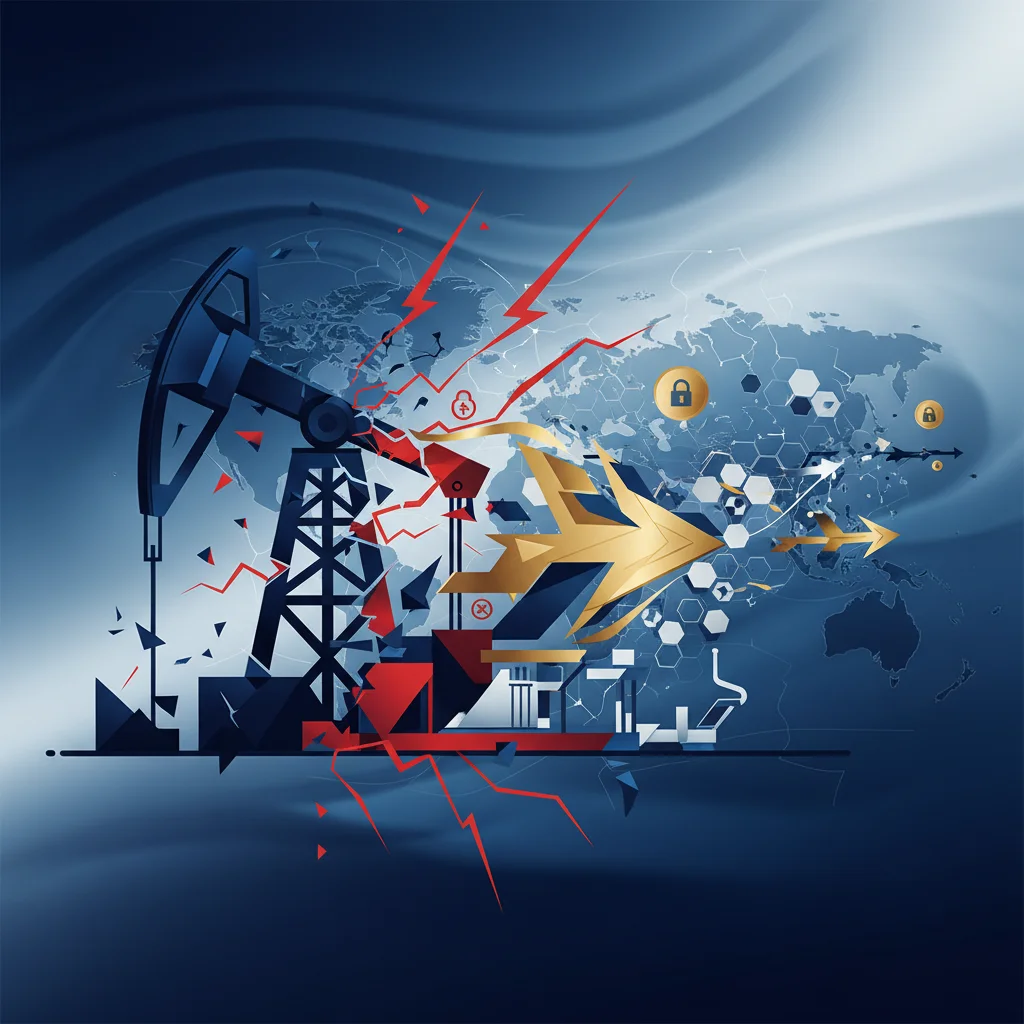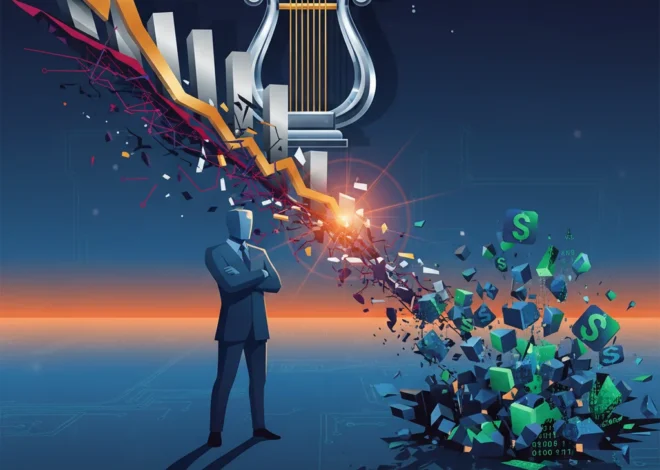
Lukoil’s Great Retreat: Decoding the Strategic Sale of International Assets Amid Sanctions
The global energy map is being redrawn, not by geologists discovering new reserves, but by politicians wielding economic sanctions. In a move that reverberates through the corridors of international finance and geopolitics, Russia’s second-largest oil producer, Lukoil, has unveiled plans to sell its international assets. This decision, prompted by the tightening grip of U.S. sanctions, is far more than a simple corporate restructuring. It is a landmark event signaling a strategic retreat, a forced consolidation, and a stark illustration of the new economic realities facing Russian corporations.
For investors, business leaders, and anyone tracking the global economy, Lukoil’s announcement is a critical case study. It raises profound questions: Is this a desperate fire sale or a calculated pivot to create a more resilient, sanctions-proof enterprise? What does this mean for the global energy supply chain, the valuation of Russian equities on the stock market, and the future of international business in an increasingly fractured world? This analysis will delve into the drivers behind Lukoil’s decision, the assets on the chopping block, and the far-reaching implications of this strategic withdrawal.
The Sanctions Squeeze: Why Retreat is the Only Option
To understand Lukoil’s decision, one must first understand the immense pressure of the sanctions regime. Following geopolitical escalations, the United States and its allies have systematically targeted key sectors of the Russian economy, with the energy industry being a primary focus. Lukoil, despite being a privately-owned company (a distinction that once offered a degree of insulation), has found itself squarely in the crosshairs.
The sanctions imposed are multifaceted and designed to cripple a company’s ability to operate on the global stage. They include, but are not limited to:
- Restrictions on Capital Markets: Limiting Lukoil’s ability to raise new debt or equity from Western investors, effectively cutting off a vital source of funding for capital-intensive projects.
- Technology Embargoes: Blocking access to advanced Western technology and services crucial for exploration, drilling, and refining, particularly for complex projects like deepwater or shale extraction.
– Financial Transaction Blocks: Making it exceedingly difficult to conduct international banking and trading operations, as Western financial institutions de-risk and sever ties to avoid secondary sanctions. According to a report by the Congressional Research Service, these measures are designed to isolate key Russian entities from the global financial system.
For a company with a significant international footprint, these restrictions transform valuable foreign assets into operational and financial liabilities. Each international project becomes a point of friction, complicated by compliance hurdles, payment challenges, and reputational risk. In this environment, the strategic rationale for holding these assets evaporates. The move to sell is, therefore, less a choice and more a necessity—a defensive maneuver to stanch the bleeding and consolidate resources within a more controlled, domestic sphere.
What’s on the Chopping Block? A Look at Lukoil’s Global Portfolio
Lukoil’s international presence was once a testament to its global ambitions, spanning refining, retail, and upstream exploration across Europe, Asia, and the Americas. The planned divestment puts a diverse and geographically spread portfolio up for sale. While the exact list remains confidential, the company’s key international holdings have been well-documented over the years.
The following table provides an overview of the types of assets Lukoil holds outside of Russia, illustrating the scale of this strategic retreat.
| Region | Asset Type | Description & Strategic Importance |
|---|---|---|
| Europe (e.g., Bulgaria, Romania, Italy) | Refineries & Petrochemical Plants | These assets were crucial for processing Russian crude and serving the European fuel market. The ISAB refinery in Sicily, for example, was one of the largest in the region before its sale was forced by sanctions (source). |
| Central Asia (e.g., Kazakhstan, Uzbekistan) | Upstream (Exploration & Production) | Significant stakes in major oil and gas fields, representing a core part of its non-Russian production and future growth prospects. |
| Middle East (e.g., Iraq) | Upstream (Exploration & Production) | Operations in major oilfields like West Qurna-2, a cornerstone of its international production portfolio. Selling this would be a major strategic shift. |
| West Africa & Americas (e.g., Ghana, Mexico) | Deepwater Exploration Projects | High-risk, high-reward ventures that depend heavily on Western technology and finance, making them particularly vulnerable to sanctions. |
The High-Stakes Sale: Navigating a Minefield of Challenges
Selling billions of dollars worth of assets in the current climate is a herculean task fraught with challenges. Lukoil cannot simply place a “For Sale” sign and expect a line of bidders from London or New York. The process will be a masterclass in navigating the complexities of modern international finance under sanctions.
The primary obstacles include:
- A Limited Pool of Buyers: Western energy majors and investment funds are out of the question due to sanctions. This leaves a small and specific group of potential suitors: state-owned enterprises from non-aligned nations (think China, India, or Gulf states), opportunistic private equity firms specializing in distressed assets, or perhaps even local management buyouts. As the original Financial Times article highlights, finding buyers who can navigate the political and financial complexities is the central challenge.
- Valuation Under Duress: Assets sold under pressure rarely fetch their market price. Potential buyers know Lukoil is a motivated seller and will negotiate for steep discounts. This will likely lead to significant write-downs on Lukoil’s balance sheet, impacting its stock market performance in the short term.
- Transactional Hurdles: How do you get paid? The mechanics of the transaction are a nightmare. Payments cannot be processed through traditional Western banking channels. This forces the use of alternative, often more opaque, financial mechanisms, potentially involving non-dollar currencies or complex barter-like arrangements. The rise of new financial technology and alternative payment systems could play a role, though this also introduces new risks.
Successfully navigating this minefield will require immense legal, financial, and diplomatic dexterity. Each deal will be a bespoke solution, carefully structured to avoid triggering secondary sanctions on the buyer and the financial intermediaries involved.
Beyond the Slice: A Financial Autopsy of Pizza Hut's UK Restructuring
The Ripple Effect on Markets and the Global Economy
Lukoil’s strategic shift will not happen in a vacuum. The divestment will send ripples across the energy markets, investment portfolios, and the geopolitical landscape.
For the stock market and investors, the implications are twofold. In the immediate term, the sale of assets at a discount will likely be a negative catalyst for Lukoil’s share price. However, a more optimistic long-term view suggests that by shedding its vulnerable international operations, Lukoil could emerge as a more stable, domestically-focused entity with a simplified risk profile. The proceeds, if repatriated and reinvested wisely in Russia, could fund new domestic projects and shareholder returns, making it a purer play on the Russian domestic energy sector for those willing to take on the sovereign risk.
For the global energy market, the change in ownership of these assets matters. New owners may have different operational priorities, investment capacities, or technical expertise. A state-owned enterprise from another country might prioritize securing energy supplies for its home market over maximizing profits, potentially altering global oil and gas flows. This ownership reshuffle adds another layer of uncertainty to an already volatile market, impacting everything from commodity trading to long-term supply forecasts.
From a broader economics perspective, this is another nail in the coffin of the post-Cold War era of global economic integration. It reinforces the trend of economic bifurcation, where the world is slowly splitting into distinct blocs with separate financial systems, supply chains, and technological standards. The retreat of a company like Lukoil is a tangible consequence of this geopolitical realignment.
Beyond the Balance Sheet: What a Local Food Pantry Reveals About the Future of Finance and Investing
A New Chapter: Lukoil’s Russia-First Future
With its international ambitions curtailed, Lukoil is set to begin a new, inward-looking chapter. The capital unlocked from these asset sales will likely be redirected toward its vast operations within Russia. This could mean increased investment in Siberian oilfields, domestic refining infrastructure, and projects in the Caspian Sea. The company’s future growth will be intrinsically tied to the fate of the Russian economy and its ability to innovate in isolation.
This pivot also raises questions about technological self-sufficiency. Cut off from Western partners, Lukoil and other Russian firms will need to develop or source alternative technologies for complex energy projects. This might involve closer collaboration with non-Western partners or a concerted state-backed push for domestic innovation. The long-term success of this strategy is one of the most significant questions hanging over the Russian energy sector’s future.
Conclusion: A Forced Transformation with an Uncertain Outcome
Lukoil’s plan to divest its international assets is a landmark moment, forced by the unyielding pressure of Western sanctions. It represents a fundamental transformation from a global energy player into a domestically-focused giant. While this move is a defensive necessity aimed at preserving the company’s core, it comes at a significant cost—the loss of valuable assets, diminished global stature, and an uncertain future tied to a single, isolated economy.
For the wider world, this is a clear signal that the economic walls are rising. The interconnected world of finance and commerce that defined the last three decades is fracturing. Lukoil’s great retreat is not just one company’s story; it is a chapter in the larger narrative of a global economy being reshaped by conflict, competition, and the powerful weaponization of economic policy.


